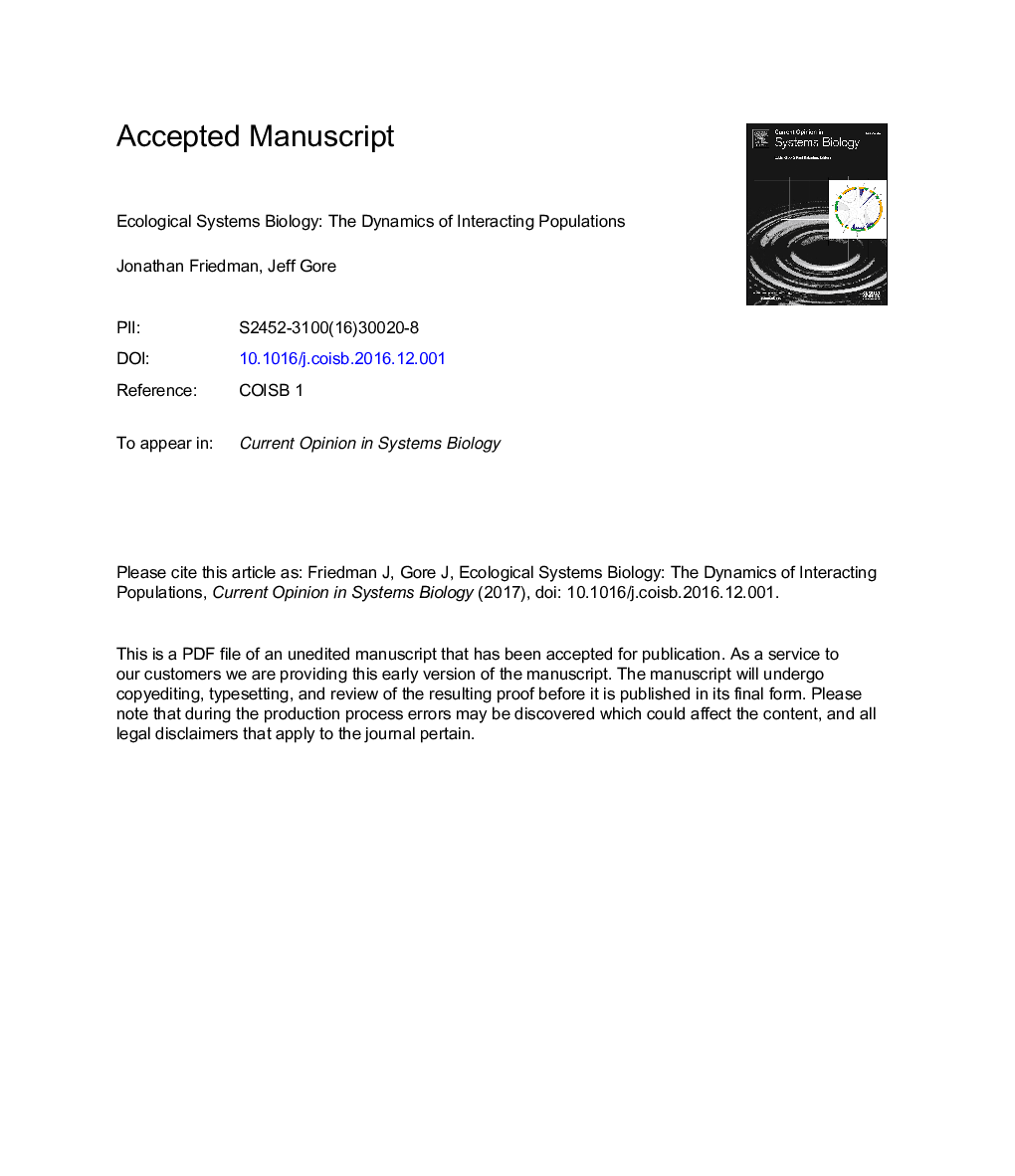| Article ID | Journal | Published Year | Pages | File Type |
|---|---|---|---|---|
| 8918235 | Current Opinion in Systems Biology | 2017 | 17 Pages |
Abstract
Ecological systems biology integrates theory and experiments in simple laboratory systems to study how interactions between individuals determine the emergent properties of complex biological communities. This approach reveals parallels between ecological dynamics that result from interactions between populations, and evolutionary dynamics which result from analogous interactions within a population. Tractable microbial systems enable systematic testing of theoretical predications, and identification of novel principles. Notable examples include using a cooperatively growing yeast population to detect theoretically predicted early-warning indicators preceding sudden population collapse, validating predicted spatial expansion patterns using two yeast strains which exchange essential metabolites, and the recent realization that coevolution of predators and prey qualitatively alters the oscillations that are observed in a rotifer-algae system.
Related Topics
Physical Sciences and Engineering
Computer Science
Computer Science (General)
Authors
Jonathan Friedman, Jeff Gore,
